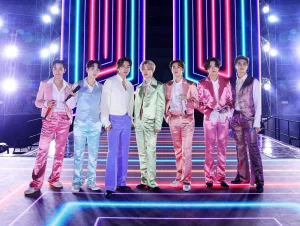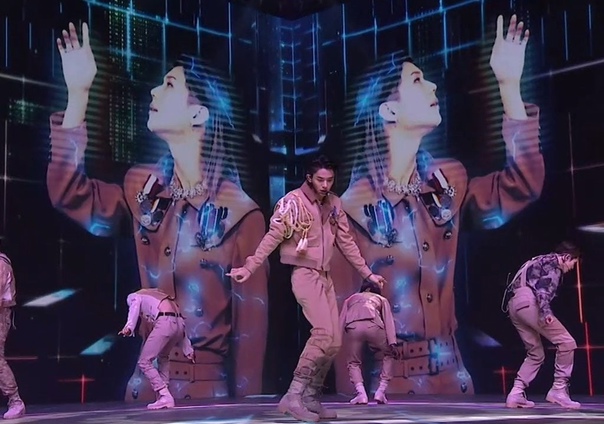Introduction The landscape of live concerts is undergoing a dramatic transformation. With technological advancements and changing audience preferences, the future of live concerts is increasingly leaning towards virtual and hybrid experiences. This article delves into the evolution of live concerts, the rise of virtual and hybrid models, and what the future holds for this exciting
Introduction
The landscape of live concerts is undergoing a dramatic transformation. With technological advancements and changing audience preferences, the future of live concerts is increasingly leaning towards virtual and hybrid experiences. This article delves into the evolution of live concerts, the rise of virtual and hybrid models, and what the future holds for this exciting industry.
The Evolution of Live Concerts

Image by: Google.com
- Historical Context
Live concerts have been a cornerstone of cultural expression for centuries. From ancient amphit heaters to modern stadiums, the essence of live music has always been about the shared experience between artists and audiences. However, the format and technology have evolved significantly over time.
- The Digital Revolution
The advent of the internet and digital technology has brought about a seismic shift in how live concerts are produced and consumed. High-definition streaming, social media, and mobile devices have made it possible for fans to experience live music from virtually anywhere in the world.
The Rise of Virtual Concerts

Image by: Google.com
- What Are Virtual Concerts?
Virtual concerts are live music performances that are streamed over the internet. These concerts can be viewed on various devices, including computers, smartphones, and smart TVs. They offer a way for artists to reach a global audience without the constraints of physical venues.
- Benefits of Virtual Concerts
- Accessibility: Virtual concerts break down geographical barriers, allowing fans from different parts of the world to enjoy the same performance.
- Cost-Effectiveness: For both artists and fans, virtual concerts can be more cost-effective. Artists save on venue and travel costs, while fans save on tickets and associated expenses.
- Flexibility: Virtual concerts can be watched live or on-demand, offering greater flexibility for viewers.
- Challenges
- Technical Issues: Streaming quality can vary, and technical glitches can disrupt the experience.
- Lack of Physical Presence: The absence of a physical audience can impact the energy and interaction that are hallmarks of live concerts.
The Emergence of Hybrid Concerts

Image by: Google.com
- What Are Hybrid Concerts?
Hybrid concerts combine elements of both physical and virtual experiences. These concerts are held in traditional venues but are also streamed online, offering a dual experience for audiences.
- Benefits of Hybrid Concerts
- Enhanced Reach: Artists can reach both local and global audiences simultaneously.
- Increased Revenue: By selling both physical and virtual tickets, artists can maximize their revenue streams.
- Community Building: Hybrid concerts offer a way to maintain the communal aspect of live music while also embracing digital innovation.
- Challenges
- Complex Logistics: Coordinating a hybrid concert requires meticulous planning and advanced technology.
- Cost: The initial investment in technology and logistics can be high.
Technological Innovations

Image by: Google.com
- Augmented Reality (AR) and Virtual Reality (VR)
AR and VR are set to revolutionize the concert experience. AR can enhance live performances with interactive elements, while VR can create fully immersive virtual concert environments.
- Blockchain and NFTs
Blockchain technology and Non-Fungible Tokens (NFTs) are emerging as new ways to monetize virtual concerts. Artists can sell limited edition digital collectibles, offering fans unique ways to engage and support their favorite musicians.
- Advanced Analytics
Data analytics can provide valuable insights into audience preferences and behaviors, allowing artists and organizers to tailor experiences more effectively.
Case Studies

Image by: Google.com
- Travis Scott’s Fortnite Concert
In April 2020, rapper Travis Scott held a virtual concert within the video game Fortnite. The event attracted over 12 million concurrent viewers, setting a new standard for virtual concerts.
- BTS’s Bang Bang Con
K-pop sensation BTS held a virtual concert series called “Bang Bang Con,” which drew millions of viewers worldwide. The event showcased the potential of virtual concerts to engage global audiences.
The Future Outlook

Image by: Google.com
- Sustainability
Virtual and hybrid concerts offer a more sustainable alternative to traditional tours, reducing the carbon footprint associated with travel and large-scale events.
- Personalization
As technology advances, the ability to personalize concert experiences will improve. Fans may soon be able to choose from multiple camera angles, interact with artists in real-time, and even influence setlists.
- Inclusivity
Virtual and hybrid concerts can make live music more inclusive, offering accessible options for people with disabilities or those who cannot attend physical venues.
Conclusion
The future of live concerts is being shaped by virtual and hybrid experiences that offer new ways for fans to engage with music. As technology continues to advance, virtual reality, interactive features, and hybrid formats are transforming how concerts are experienced and enjoyed. While challenges remain, the potential for innovation and new opportunities in the music industry is vast. Embracing these changes will allow artists and fans to connect in exciting and meaningful ways, ensuring that the magic of live music continues to thrive in the digital age.
















